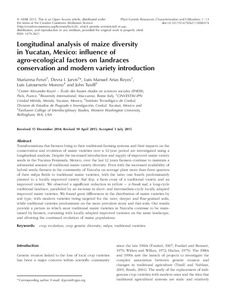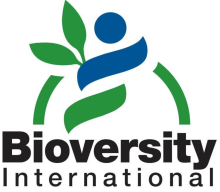Resource information
Transformations that farmers bring to their traditional farming systems and their impacts on the conservation and evolution of maize varieties over a 12-year period are investigated using a longitudinal analysis. Despite the increased introduction and supply of improved maize variety seeds in the Yucatan Peninsula, Mexico, over the last 12 years farmers continue to maintain a substantial amount of traditional maize variety diversity. Even with the increased availability of hybrid seeds, farmers in the community of Yaxcaba on average plant more than three quarters of their milpa fields to traditional maize varieties, with the latter one fourth predominately planted to a locally improved variety Nal Xoy, a farm cross of a traditional variety and an improved variety. We observed a significant reduction in yellow – x-Nuuk nal, a long-cycle traditional landrace, paralleled by an increase in short- and intermediate-cycle locally adapted improved maize varieties. We found great differences in the distribution of maize varieties by soil type, with modern varieties being targeted for the rarer, deeper and fine-grained soils, while traditional varieties predominate on the more prevalent stony and thin soils. Our results provide a picture in which most traditional maize varieties in Yaxcaba continue to be maintained by farmers, coexisting with locally adapted improved varieties on the same landscape, and allowing the continued evolution of maize populations



